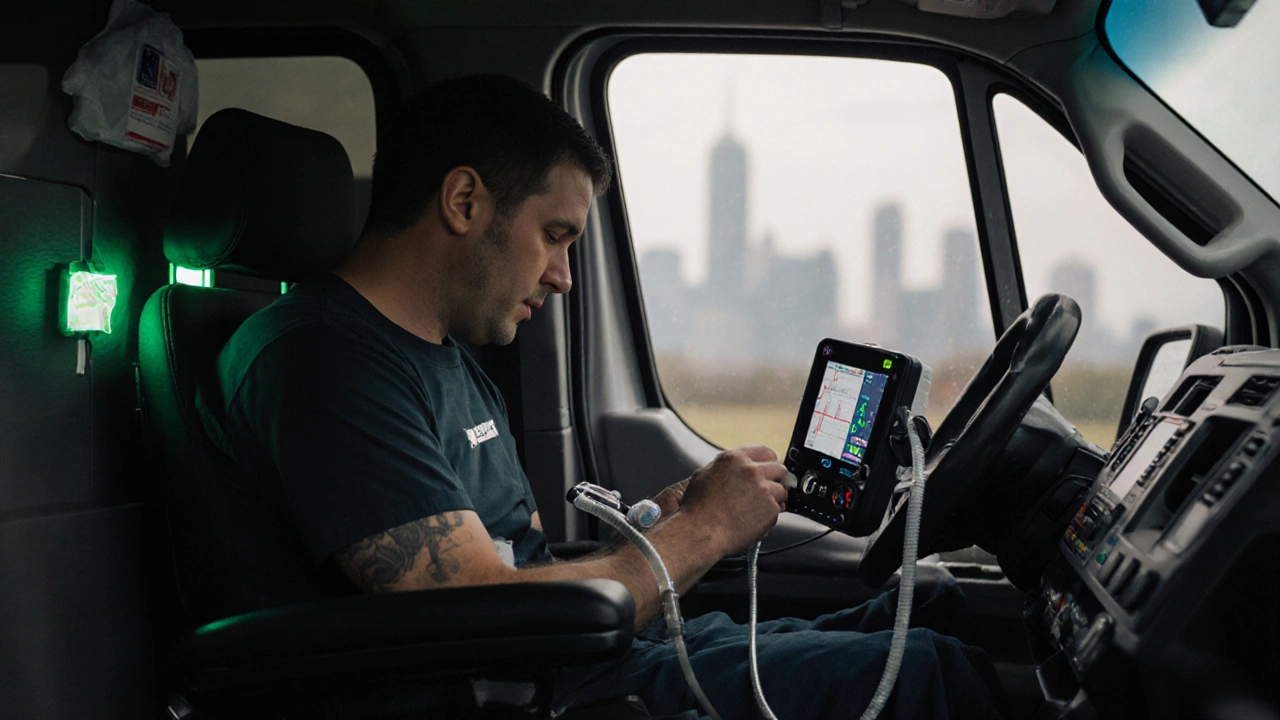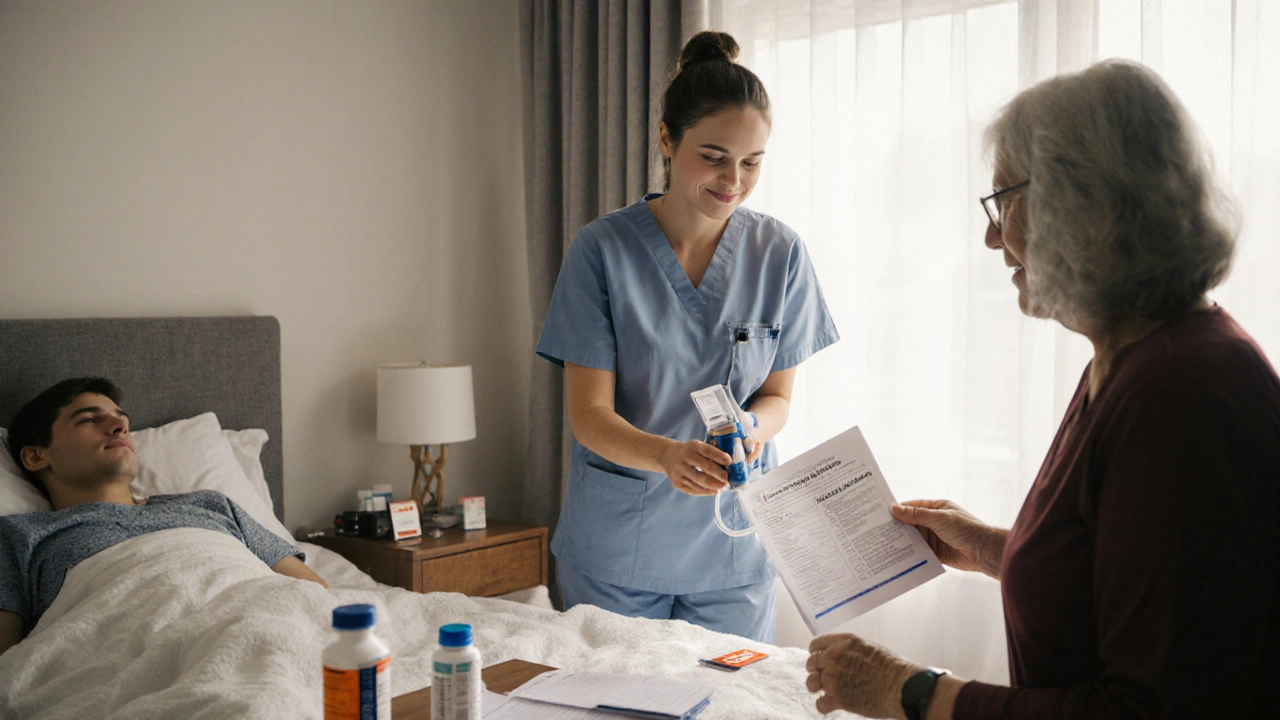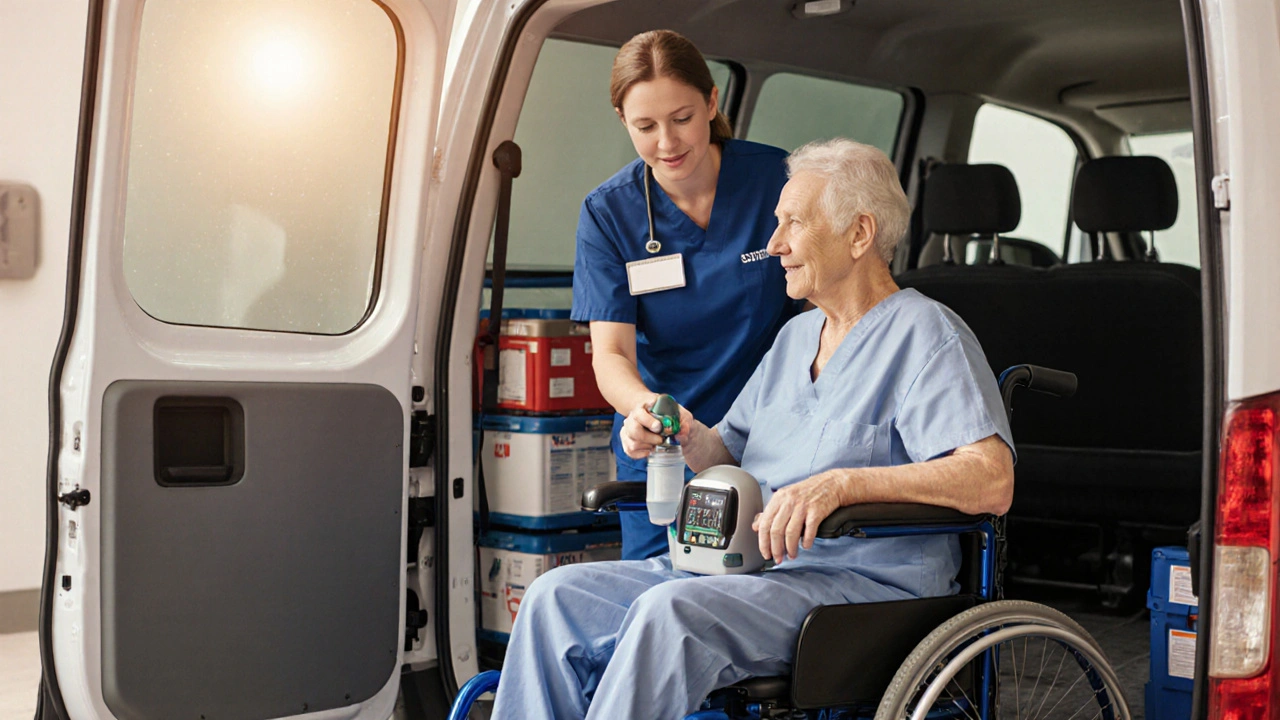After surgery or a major medical procedure, getting home isn’t just about catching a flight or booking a taxi. It’s about safety, comfort, and making sure your body has the right support from the moment you leave the hospital. That’s where medical escort services come in. These aren’t just drivers with a stretcher. They’re trained professionals who manage your care from discharge to doorstep-handling medical equipment, monitoring vital signs, coordinating with doctors, and even helping you settle back into your home.
What Exactly Do Medical Escort Services Do?
Think of a medical escort as your personal care coordinator on wheels. They’re not just there to move you from point A to point B. They’re responsible for the entire transition. This includes:
- Collecting you directly from the hospital or clinic after discharge
- Ensuring your oxygen tank, IV drip, or monitoring device stays functional during transit
- Administering scheduled medications on time
- Communicating with your surgeon or GP if your condition changes mid-travel
- Assisting with mobility-helping you stand, walk, or transfer safely
- Arranging for wheelchair access, airport assistance, or customs clearance if traveling internationally
One patient in Perth, recovering from a hip replacement, needed to fly back to her family in Adelaide. Her hospital discharge was at 3 PM, and her flight left at 7 PM. Without a medical escort, she’d have had to wait in a wheelchair at the terminal, manage her own pain meds, and navigate security alone. Instead, her escort met her at the ward, brought a portable oxygen concentrator, coordinated with the airline for priority boarding, and stayed with her until her daughter picked her up at the destination. That’s the difference.
Who Needs a Medical Escort?
You don’t have to be bedridden to benefit. Medical escort services aren’t just for the elderly or critically ill. They’re designed for anyone who can’t safely manage travel on their own after a procedure. Common cases include:
- Patients recovering from cardiac surgery or stent placement
- Individuals with mobility limitations after joint replacements
- People discharged after chemotherapy or radiation treatments
- Those with neurological conditions like stroke or Parkinson’s
- Patients traveling long distances for follow-up care
- Children or teens undergoing surgery far from home
Even if you’re young and otherwise healthy, if you’ve had major abdominal surgery or are on strong painkillers, you might not be safe to travel alone. Your body is still healing. Your reflexes are slowed. Your balance is off. A medical escort isn’t a luxury-it’s a safety net.
How Is This Different From Ambulance Services or Taxis?
Many people assume an ambulance is the only option. But ambulances are for emergencies. They’re not meant for non-urgent transfers. They’re loud, fast, and staffed by paramedics focused on crisis response-not comfort or continuity of care.
Taxis? They don’t carry oxygen tanks. They don’t know how to handle an IV line. They won’t call your doctor if your blood pressure drops. And they definitely won’t help you get dressed or carry your bags.
Medical escort services sit in the middle. They’re not emergency responders. They’re not just drivers. They’re trained in post-operative care, certified in basic life support, and often have nursing backgrounds. Their vehicles are equipped with medical-grade supplies: portable monitors, suction devices, emergency meds, and climate control for sensitive patients.

How to Choose the Right Service
Not all medical escort providers are the same. Here’s what to look for:
- Certifications - Do they have staff trained in CPR, ACLS, or as Certified Medical Transport Specialists? Ask for proof.
- Vehicles - Are they modified with ramps, lifts, or reclining stretchers? Is there space for medical equipment?
- Communication - Can they coordinate directly with your hospital? Do they provide real-time updates to family members?
- Insurance Coverage - Some services work with Medicare, private insurers, or workers’ comp. Others are out-of-pocket. Ask upfront.
- Experience - Have they handled cases like yours? Ask for examples.
In Australia, services like MedTrans and CareLink are well-established. Overseas, companies like Air Ambulance Network and Medjet have global networks. Always check reviews from past patients-not just ratings, but actual stories.
What Happens When You Arrive?
The job doesn’t end when the car stops. A good escort will help you get inside, make sure your home is ready (bed positioned, supplies laid out), and even show your family how to use your medical devices. They’ll hand over a written care summary: medications, dosages, warning signs, and who to call if something goes wrong.
One mother in Melbourne had her 14-year-old son flown home after a spinal fusion in Sydney. The escort didn’t just drop him off. He spent 20 minutes showing the parents how to adjust the pain pump, where to find the emergency contact card, and how to recognize early signs of infection. That’s the kind of detail that prevents readmissions.
Cost and Coverage: What You Need to Know
Costs vary widely. A local trip within a city might run $300-$600. International transfers can be $5,000-$20,000 depending on distance and equipment needs.
Medicare doesn’t cover non-emergency medical transport-unless you’re enrolled in a Medicare Advantage plan that includes it. Some private health insurers do offer partial coverage under “transport benefits.” Workers’ compensation often covers it if the procedure was work-related. Travel insurance? Rarely. Most policies exclude post-procedure transport unless it’s part of a medical evacuation clause.
Always ask for a detailed quote before booking. Some providers bundle services: ground transport, flight coordination, and bedside handover. Others charge per mile, per hour, or per device used. Know what you’re paying for.

Red Flags to Watch Out For
Not every company that calls itself a “medical escort” is legit. Watch for these warning signs:
- No licensed staff on record
- Vehicle looks like a regular van with no medical markings
- Refuses to provide staff credentials
- Doesn’t coordinate with your hospital
- Asks for full payment upfront with no contract
If they can’t tell you the name of their lead nurse or show you their safety inspection certificate, walk away. Your recovery isn’t a gamble.
Planning Ahead Saves Stress
The best time to arrange a medical escort is before your procedure-even while you’re still in the hospital. Talk to your discharge planner. Ask if they have a list of approved providers. If not, start calling local services now. Don’t wait until you’re weak and disoriented to make decisions.
Keep a folder with: your surgeon’s contact, medication list, insurance info, and the escort company’s details. Share it with a family member. Make sure someone knows your plan.
Recovery isn’t just about healing your body. It’s about managing the logistics so you don’t burn out trying to do it all yourself. A medical escort doesn’t just move you. They give you back time, peace of mind, and the energy to heal properly.
Are medical escort services only for international travel?
No. While they’re often used for long-distance or cross-border transfers, most trips are local-between hospitals, clinics, and homes. Whether you’re going from a city hospital to a suburb 20 minutes away or flying from Perth to Brisbane, medical escorts handle all distances. The key is whether you need medical support during transit, not how far you’re going.
Can I use a medical escort if I’m not in a hospital?
Yes. Many people use these services after outpatient procedures like colonoscopies, joint injections, or dialysis. Even if you’re not admitted overnight, if you’re under sedation or have mobility issues, a medical escort can safely take you home and make sure you’re settled. Some services even offer pre-scheduled rides for regular treatments.
Do medical escorts carry emergency medications?
Most do. They carry basic emergency supplies like oxygen, epinephrine, aspirin, and IV fluids. They’re trained to respond to sudden changes-like a drop in blood pressure or trouble breathing. But they’re not a replacement for an ambulance. If a life-threatening emergency happens, they’ll call 000 immediately and stabilize you until help arrives.
How far in advance should I book a medical escort?
At least 48 hours ahead is ideal, especially for long-distance or international trips. For local trips, 24 hours may be enough, but don’t wait until the last minute. Some services have limited vehicles or staff availability, and holidays or weekends can fill up fast. Planning early ensures you get the right vehicle and the most experienced escort for your needs.
Can family members ride along?
Usually yes. Most medical escort vehicles can fit at least one passenger alongside the patient. Some even allow two, depending on the vehicle size and medical equipment needed. It’s important to let the service know in advance so they can arrange the right vehicle. Family members can help with comfort, but the escort remains responsible for medical care.
Final Thoughts: Recovery Shouldn’t Be a Solo Journey
Going home after surgery should feel like rest-not another challenge. Too many people push through recovery alone because they don’t know medical escort services exist, or they think it’s too expensive. But the real cost is what happens when things go wrong: a fall, an infection, a missed dose, a hospital readmission. Those costs are far higher than the price of a trained escort.
Whether you’re flying across the country or just heading back to your apartment down the street, having someone who knows your medical history, your meds, and your limits makes all the difference. It’s not just transport. It’s continuity of care. And in recovery, continuity is everything.
